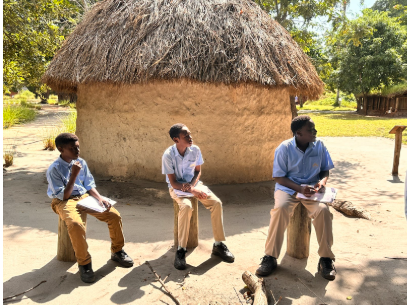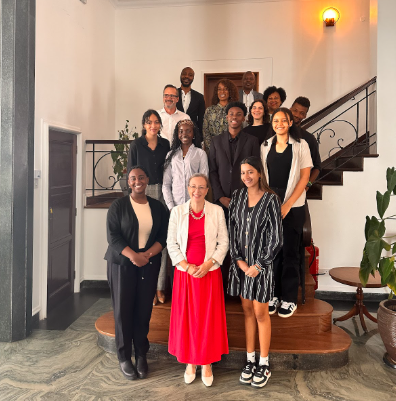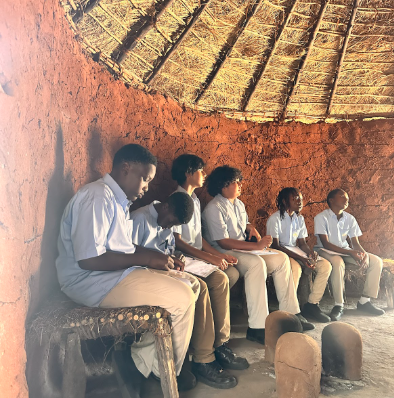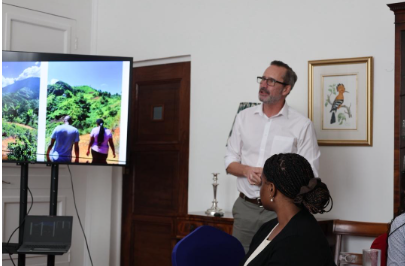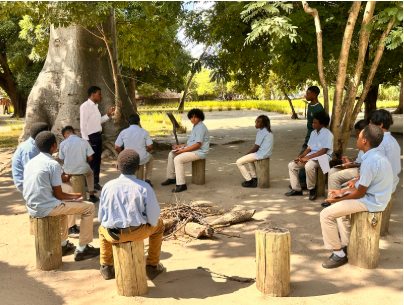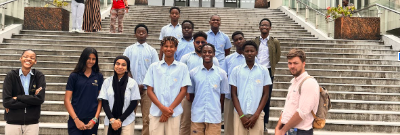
Humanities
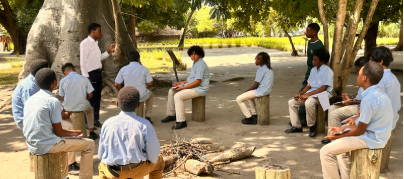
20th June 2025
This week has been a busy week in Humanities. We have had lots of exciting trips.
On Monday, year 8,9 and 10 history and English students attended a screening and Q and A session for the documentary ‘Tazara’. It detailed the lives of the workers who were responsible for the railway’s construction between 1970-1975. The workers came from Zambia, Tanzania and China. Many of us understood from the documentary that the workers had huge pride in their work and built cross cultural links with their Chinese co-workers. Some even travelled to China to complete training there.
Workers had kept all sorts of objects as mementos for example a Chinese worker still had the suitcase he travelled to East Africa with containing travel tickets, ebony checkers and photographs.
The students enjoyed touring the grounds and the history department. We are grateful to the University of Dar es Salaam, Doctor James Kuboja for inviting us and making us so welcome and Professor Jamie Monson from Michigan State University whose research she shared with us.
On Tuesday we had the honour of celebrating our Duke of Edinburgh Bronze award participants. We were hosted by the British High Commissioner, Marianne Young. Her staff served us delicious tea and cakes at Her Excellency’s residency and she spoke at length with the students about their experiences. Thank you to the parents who were able to attend and mark this momentous occasion. Her Excellency was very kind and welcomed us back next year. If you are in Year 9, 10 and 12 and thinking about doing the Duke of Edinburgh Award I would highly recommend it. It not only builds your CV and gets you to challenge yourself, you go outdoors, solidify friendships and contribute positively to your community.
On Thursday year 7 historians and year 9 and 10 sociology students went to Makumbusho Village Museum to explore building design and cultural diversity amongst Tanzanian tribes. They were shown around the houses and educated on tribes such as Iraqw, Nyakusa, Safwa and Mbembe to name a few. Generally parents have polyamorous relationships with the men have multiple wives. Boys are often expected to leave the home between 8-12 and build their own house. Gender roles are very clear with some spaces only being allowed to be accessed by men such as meeting spaces.
The students were really interested by the tribes where people lived underground or hidden under mounds for example the Iraqw people who were trying to hide from the Maasi who they were in conflict with. Well done to Ashley, Mayati, Oshumu, Sabrina and Hayaam who represented their teams in the quiz when we got back to class to reflect on the day. A special well done to Year 7 girls who won the quiz. A well done to all students who came as everyone was focused, polite and attentive, listening carefully and recording all the information given by the guides which was impressive as we were walking around for two hours. Thank you to the guides from Makumbusho for being so informative and taking great care that all students were able to understand and learn.
